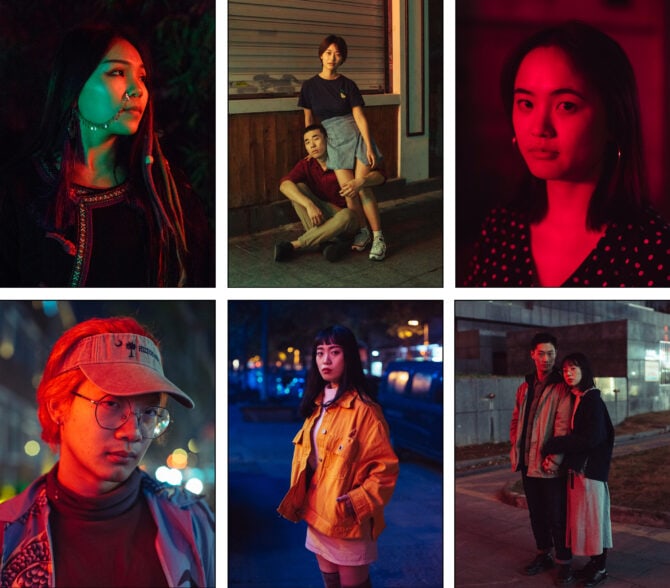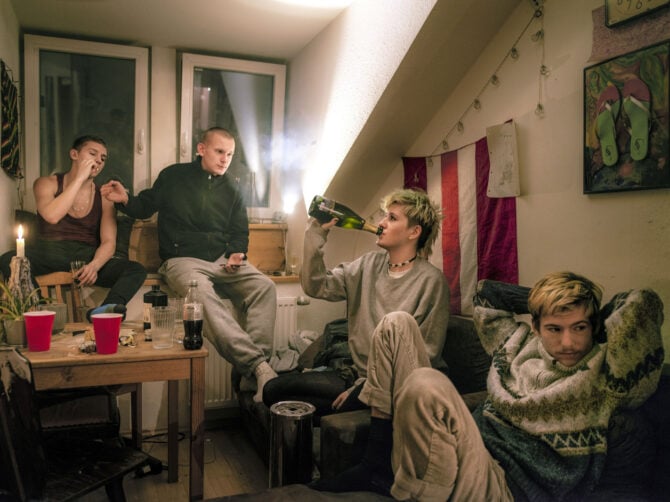Studying photography: How to find the right university.
An overview of the best-known programmes in Germany.
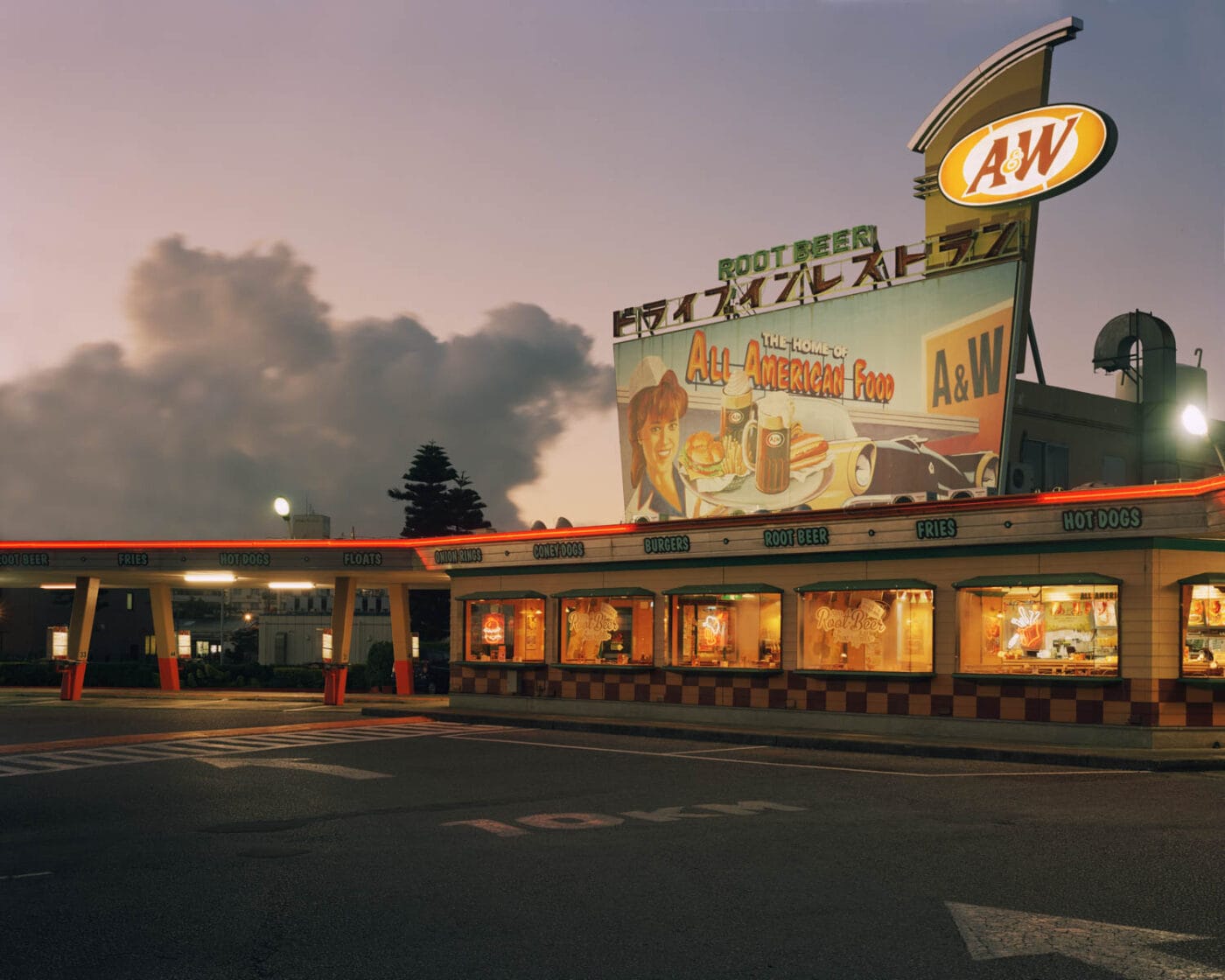 Photography from the study work "America" by Max Ernst Stockburger
Photography from the study work "America" by Max Ernst Stockburger
If you want to work professionally as a photographer, photojournalist or picture editor, it definitely makes sense to study the broad field of photography as well. Photography has been in a constant state of change and upheaval for years. If you want to stand out among the competition on the market in this subject, a good education is a basic requirement. In this post, we’ll give you advice to help you find your way to the right photography major. We also share experiences from other students and give tips for your application.
Content
1. the right photography course of study. What to do when spoiled for choice? An overview of study opportunities in Germany and student testimonials
2. the basic requirements. What high school diploma do you need to study photography? An insight into which questions you should clarify right at the beginning.
3. the right application portfolio. What should definitely be in your portfolio, what should you avoid? Tips and tricks for a successful portfolio.
4. the entrance exam. You’ve been shortlisted – now what? With this advice, you’ll be convincing on exam day.
5. photography studies begin. These are the things you can look forward to.
6. conclusion. From finding the right course of study to passing the entrance exam: Here you’ll find a summary of everything!
1. The right photography programme
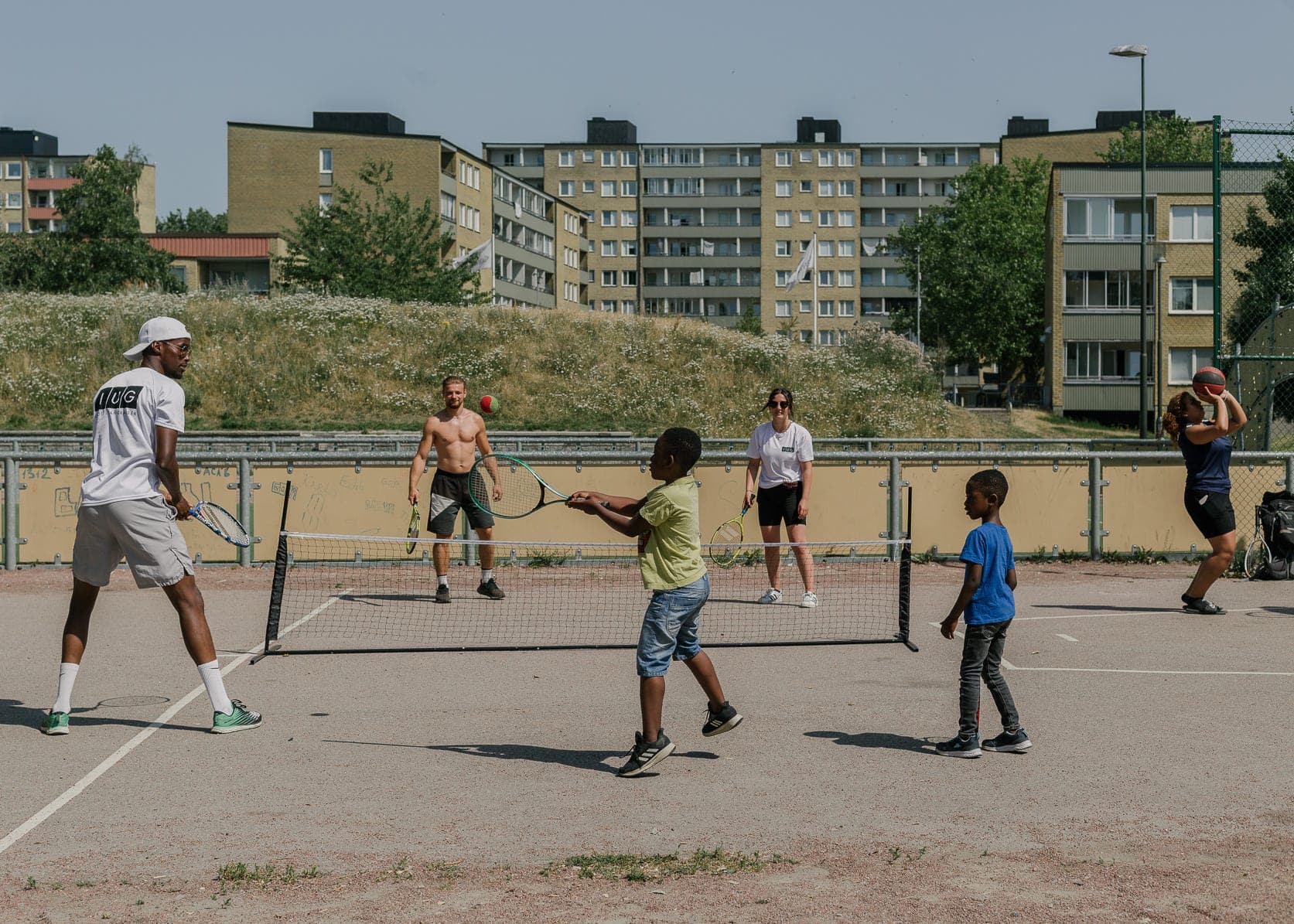 Nora Schwarz documented the large housing estate Rosengård in the Swedish city of Malmö in her student research project "Nästa dörr i Rosengård".
Nora Schwarz documented the large housing estate Rosengård in the Swedish city of Malmö in her student research project "Nästa dörr i Rosengård".
There are many opportunities to study photography in Germany. There are numerous university degree programs with different orientations. In addition, there is a whole series of art academies that, according to their names, tend to focus on artistic photography. This is supplemented by photography degree programs from private providers. There, you sometimes even have to pay money for a course of study or vocational training. In order not to lose the overview, it is therefore important to deal with the individual orientation of the respective universities. You can view the work of students and graduates online or in exhibitions: What did they photograph during their photography studies? In addition, find out what opportunities the individual training centers offer you. For example, are there interesting internship collaborations or funding opportunities that you can take advantage of during your studies?
We are now much broader than before: It is no longer just about the medium of photography, but also about film and video, for example.
 Prof. Dr. Karen Fromm
Prof. Dr. Karen Fromm
If you’re interested in journalistic photography, you should definitely check out the Visual Journalism and Documentary Photography programme at Hannover University of Applied Sciences and Arts. This, unlike other photography majors, has a strong focus on journalistic photography, multimedia, and visual storytelling. The course used to be called “Photojournalism and Documentary Photography,” but has since been realigned. The aim was to do justice to the changes in the photographic industry, but also in society’s approach to the medium as a whole. Prof. Dr. Karen Frommwho teaches in Hannover, says: “We now offer a much broader range of courses than before: It’s no longer just about the medium of photography, but also about film and video, for example.” At the same time, the course now offers greater opportunity for individual focus on topics besides photography, such as digital journalism or documentary practices.
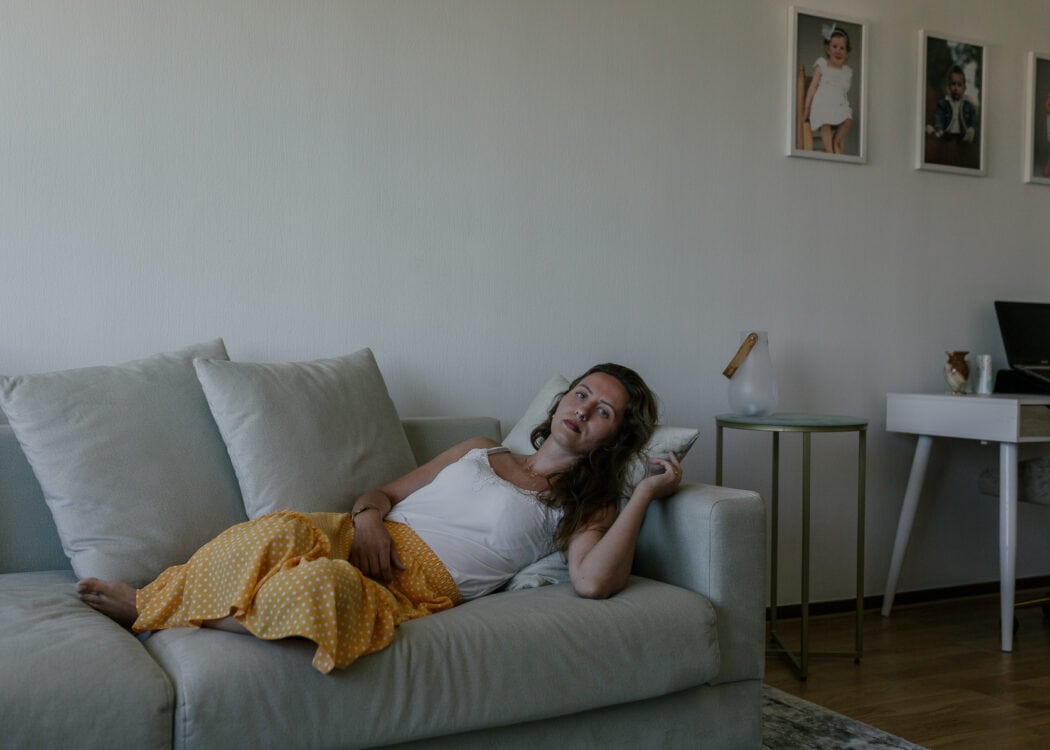 Egzona (29), born and raised in Denmark, studies in Copenhagen. She moved to Sweden to live with her husband from Kosovo – her home country. Since it is difficult to get a permanent visa in Denmark, they decided to move to Malmö and live in Rosengård. The photo is from the work "Nästa dörr i Rosengård" by Nora Schwarz.
Egzona (29), born and raised in Denmark, studies in Copenhagen. She moved to Sweden to live with her husband from Kosovo – her home country. Since it is difficult to get a permanent visa in Denmark, they decided to move to Malmö and live in Rosengård. The photo is from the work "Nästa dörr i Rosengård" by Nora Schwarz.
Prof. Dr. Karen Fromm adds: “Universities such as Dortmund University of Applied Sciences and Bielefeld University of Applied Sciences focus on a much broader spectrum of photography than we do in Hannover. There is also the privately run Ostkreuzschule in Berlin, whose teaching is centrally concerned with documentary and artistic photography. At Folkwang University of the Arts, the master’s degree is particularly exciting. Some of our B.A. students have already gone on to do a master’s degree here.”
On the one hand, there is the Master “M.A. Photography Studies and Research” at Folkwang University. According to the university, it’s for anyone who is “fascinated by thinking critically about photography.” At the same time, you can also pursue theM.A. Photography Studies and Practice. This is ideal for people “who want to intensify their engagement with this multifaceted medium.” According to Folkwang University, the combination and adjacency of these two independent master’s programs enables a “close transdisciplinary dialogue between art and science.”
Field reports from different photography courses
Not all photography students find the right university right away and later switch to another program to study their favorite genre of photography. So Amelie, Ahmed, and Hannah all three attended several different training schools, some of which suited them better than others.
Amelie: From “Photo Design” to “Photojournalism and Documentary Photography
Amelie Sachs began her photography studies at the University of Applied Sciences and Arts in Munich and later moved to Hanover, where she is currently working on her bachelor’s degree. In addition to her studies, she works as a freelance photo editor for STERN. Her work has been published in DIE ZEIT and the Neue Zürcher Zeitung, among others. Amelie’s decision to submit a portfolio for photography studies was very spontaneous. She applied to Munich University of Applied Sciences because most of the other universities’ application deadlines had already passed.
The course of study in Munich is called “photo design” and deals with different genres of photography. “At the beginning, back then, it was mainly classes on the basics of design, color theory, layout and typography for two semesters. I enjoyed that,” Amelie thinks back. In the third semester, I added photographic subjects such as architectural photography, product photography and fashion photography. This made it clear to Amelie that the course of study wasn’t quite right for her: “I realized quite quickly that the course of study in Munich was too broad for me. It was then clear to me that I was mainly interested in photojournalism.” About the Lumix Festival she then came across the study program in Hanover. When she visited the festival, she was taken by the fact that the students were very friendly to her. Therefore, she decided to change universities in order to study photography in Hanover.
Looking back on her studies in Hanover, she concludes: “My current view of photography is very different from the one I started with. In the beginning, I found it exciting that you travel everywhere for reportage. I still do, but now I also want to be more sensitive and involve my protagonists* more.” For Amelie, it was important to question photography and photojournalism with their power dynamics on a meta-level during her studies. For example, at the symposia that the program regularly organizes. It also discusses issues from research on photography. “It’s great to have the time and space in college to find yourself there,” Amelie recalls.
At the same time, she very much welcomes the fact that the English language is now being more strongly incorporated into the course of study in Hanover. She believes that photography studies could benefit in the long run by being more inclusive of people of different backgrounds and colors.
Ahmed: International Photography Studies in Europe.
Egyptian photojournalist Ahmed Abd El-Gawad also studied at several universities. He had already worked for the Egyptian newspaper Shorouk News for several years before graduating. His pictures had gone around the world via the news agencies AP and AFP. In 2019, he then participated in the international class at Hanover University of Applied Sciences and Arts. Two female colleagues who were friends had told him many positive things about the study. Meanwhile, Ahmed is working on his Final Diploma at the Danish School of Media and Journalism (DMJX) in Aarhus. DMJX offers an international photojournalism program that lasts two semesters and is considered highly prestigious. It is also one of Hannover University of Applied Sciences’ international partner schools, resulting in regular exchanges between the two programs.
When Ahmed thinks back to his time at Hannover University of Applied Sciences and Arts, he recalls, “Hanover was very important for me as a first step on the ladder, it totally opened my eyes.” He heard the term “Orientalism” there for the first time, and began to understand how his culture is constantly stereotyped in the media: “You see Egyptian photographers who don’t even understand that they are photographing Egypt with a Western view. They just know that if they photograph that way, they’ll get recognition.” Between his teachers and fellow students, a friendly relationship developed at eye level. The classroom thus became a safe place for him. He was also able to talk to the teachers there about bad experiences he had had during his professional career. At the same time, courses on topics like curating or designing photo books were a whole new experience for Ahmed: “I found the approach to try everything. And if you fail at it, you try it again.” Studying in Hannover also made it possible for him to take part in the Canon Student Development Program directly afterwards, where he was able to establish contacts with international photo editors.
Hannah: Photography at the private vocational school.
Hannah Aders wanted to stay in Berlin when she began her studies. Initially, she was interested in the course “Visual Communication” at the University of the Arts (UdK). However, she quickly realized that she was most passionate about photography. That’s why she finally decided to pursue vocational training at the Lette Verein, a private training institute in Berlin. “The decision to go with the Lette Verein was pragmatic above all. It had a good reputation in Berlin and at the same time the lowest costs,” Hannah recalls. Vocational training there costs 95 euros a month. At the Ostkreuzschule, studies would have cost between 400 and 480 euros per month, depending on the semester.
Vocational training at the Lette Verein is comparatively school-based; students study there for three years in a fixed class structure. If you don’t pass something, you have to repeat the entire year. During her first year, Hannah did a lot of analog photography at the Lette Verein, working with large format and developing negatives herself. After that there were subjects in the different directions, Hannah attended courses on fashion photography, still-live photography and portrait photography. At the same time, she worked on documentary projects. For example, she photographed a work about people who had fled Syria to Lebanon.
In Hannah’s development, the versatility was a great advantage at the time: “For that age, this opportunity to try out so much was cool. At the same time, I would have liked more career perspective: after I graduated, I fell into an extreme hole and didn’t know what to do with it at all.” In the meantime, however, the curriculum has changed once again: “Due to the innovation, I find it more exciting; you now commit to a focus after the first year. This means you no longer have to deal with architectural photography if you don’t want to work in that field at all.”
After graduating from the Lette Verein, Hannah completed two internships in Barcelona and then began her studies at the Hochschule Hannover. “That was the only option for me at the time, because of the focus on classic documentary photography. Bielefeld and Essen were too artistic for me.” Even though Hannah would like to see harder editing processes, she feels very much at home in Hanover. One of the special experiences was her internship as an editorial photographer at the FAZ, with which there is a permanent internship cooperation: “It was nice to have a permanent editorial team and grow from it.”
2. The basic requirements to study photography
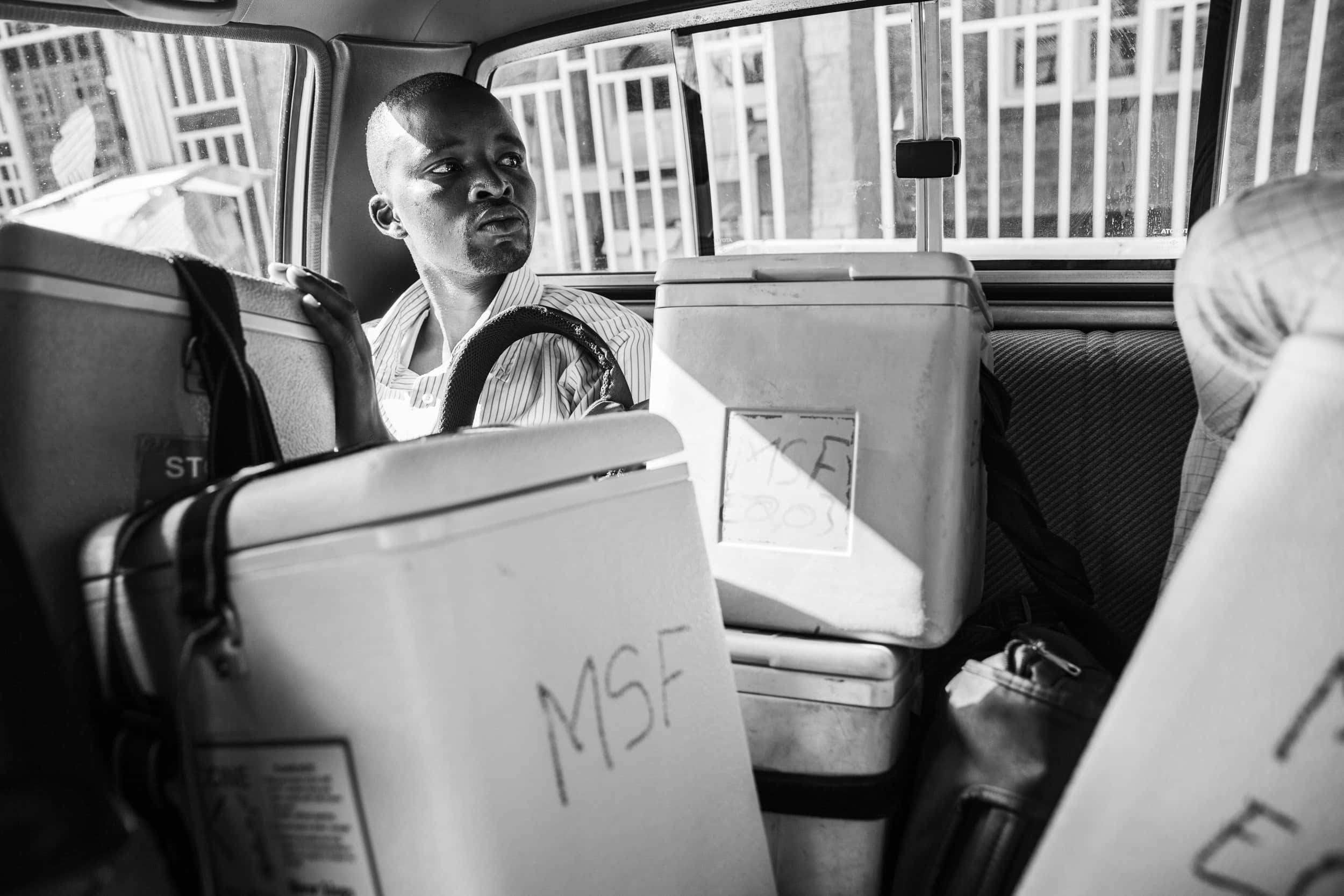 DEMOCRATIC REPUBLIC OF CONGO. Beni, North-Kivu. 2019. Ebola vaccination campaign by MSF. ©Jonas Wresch / Agentur Focus
DEMOCRATIC REPUBLIC OF CONGO. Beni, North-Kivu. 2019. Ebola vaccination campaign by MSF. ©Jonas Wresch / Agentur Focus
Before you decide on a photography course of study, you should take a look at the study requirements. In most cases, you need a high school diploma (Abitur, Fachabitur or equivalent) to be able to apply for a place at university. Even if you come from Austria or Switzerland, it is easy to study photography in Germany. “It’s not very complicate to get the Matura recognized,” Professor Michael Hauri knows from his own experience: he himself grew up in Switzerland and later studied at Hanover University of Applied Sciences and Arts. In this case your school diploma must be from “UNI-ASSIST” be checked. This is an association run by the universities together with the DAAD, among others. But even if you don’t have a high school diploma, you can still be accepted into some degree programmes – as long as certain requirements are met. In that case, you may have to show superior aptitude in the artistic entrance exam.
You should also check which photography programs require a pre-internship or a specific language requirement. If a degree programme is bilingual, for example, you may have to prove your English proficiency. Unfortunately, the language certificates from your school days are usually not sufficient. Once you’ve checked off these items, the next step is to focus on your photography degree application portfolio.
3. The right application folder for photography studies
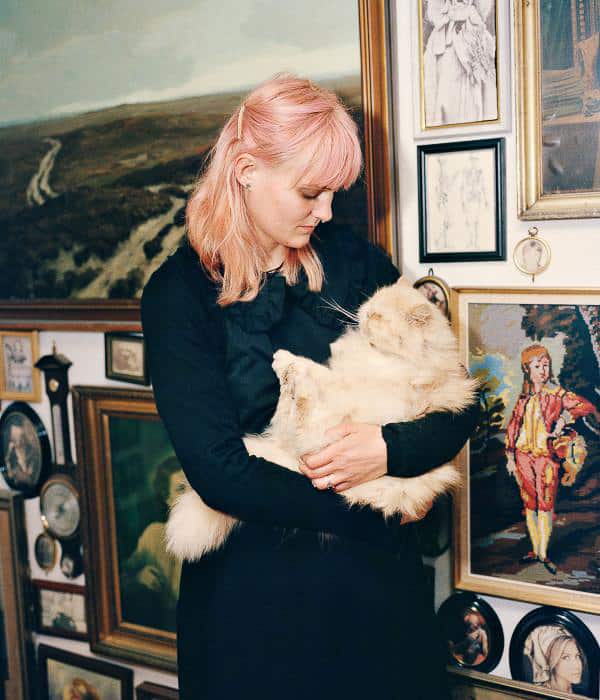 © Amelie Sachs
© Amelie Sachs
 Aus der Arbeit „We Are The Granddaughter Of The Witches You Could Not Burn“ über modernes Hextentum in Dänemark.
Aus der Arbeit „We Are The Granddaughter Of The Witches You Could Not Burn“ über modernes Hextentum in Dänemark.
Once you have found your desired degree programme, you usually have to go through a selection process. Individual procedures vary by college or art school. In most cases, however, you have to submit an application portfolio and then take an entrance examination. Prof. Dr. Karen Fromm advises: “The best way to get into university is to attend a Portfolio review participate.” Many study programs offer such appointments, in which you can talk to the teachers about your pictures. By talking to the lecturers, you can find out very well what view of photography the respective university has and what they expect from your application.
Karen Fromm adds, “It’s definitely recommended to show smaller projects in the portfolio, each on a specific theme and with a consistent visual language, rather than a collection of individual images.” She herself has contributed to a guide that can help you with this process. It explains the steps to creating a photo series – from finding the subject, to taking the photo, to editing the image.
It is better to show small projects with an overarching theme and consistent visual language in the portfolio rather than just individual images.
 Prof. Dr. Karen Fromm
Prof. Dr. Karen Fromm
You should definitely take a very close look at what each program wants to see from you. The requirements for your application portfolio often vary: While the teachers in Hanover, for example, definitely want to see documentary and journalistic projects, things can look very different at universities in Berlin or Hamburg.
4. The entrance exam for photography studies
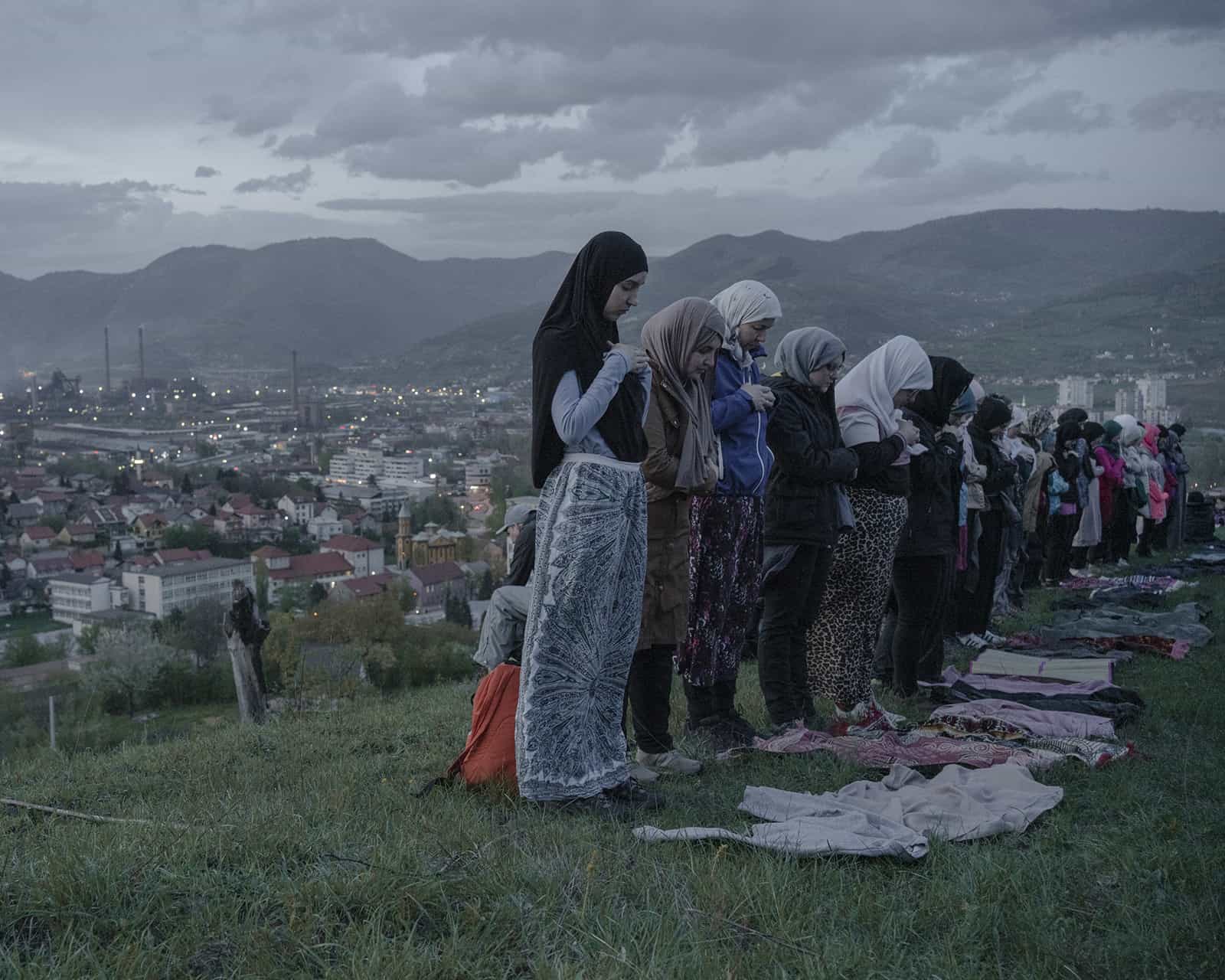 The work "Zeljezara" by Lasse Branding documents life in the Bosnian town of Zenica.
The work "Zeljezara" by Lasse Branding documents life in the Bosnian town of Zenica.
After you submit your portfolio, a panel of faculty usually decides whether you will be invited to take the entrance exam. This looks different depending on the university or academy: Some of these exams last several days, some take place within one day. Usually they consist of one or more photographic tasks and a personal interview.
Typical interview questions:
– Why do you want to study photography?
– Why should you be admitted to the photography program?
– Why did you photograph a subject in a certain way?
– What project would you implement if you received a 10,000 euro grant?
Advanced interview questions:
– What is the last book you read or the one you would like to read?
– What news topic are you thinking about right now?
– What would you do if you couldn’t study photography?
If questions lead a little further away from photography, the teachers usually want to find out what else you are involved with. This helps them get to know you better as a person. Of course, you may be asked completely different questions depending on which photography program you are applying for. Still, it makes sense for you to think about these issues ahead of time. Of course, it’s important that your answers don’t seem rehearsed. If you have stage fright beforehand, that’s normal. A good tip for this is to hold a pen in your hand. This can make you subconsciously become more relaxed and shake less.
The photographic tasks in the entrance examination can vary greatly depending on the university. Sometimes there are more abstract tasks where you’re given a theme, like, “I see something you don’t.” Other tasks are a bit more hands-on, such as finding an interesting person and making a portrait of them. Or recreate and reinterpret a famous photograph.
5. The photography course begins
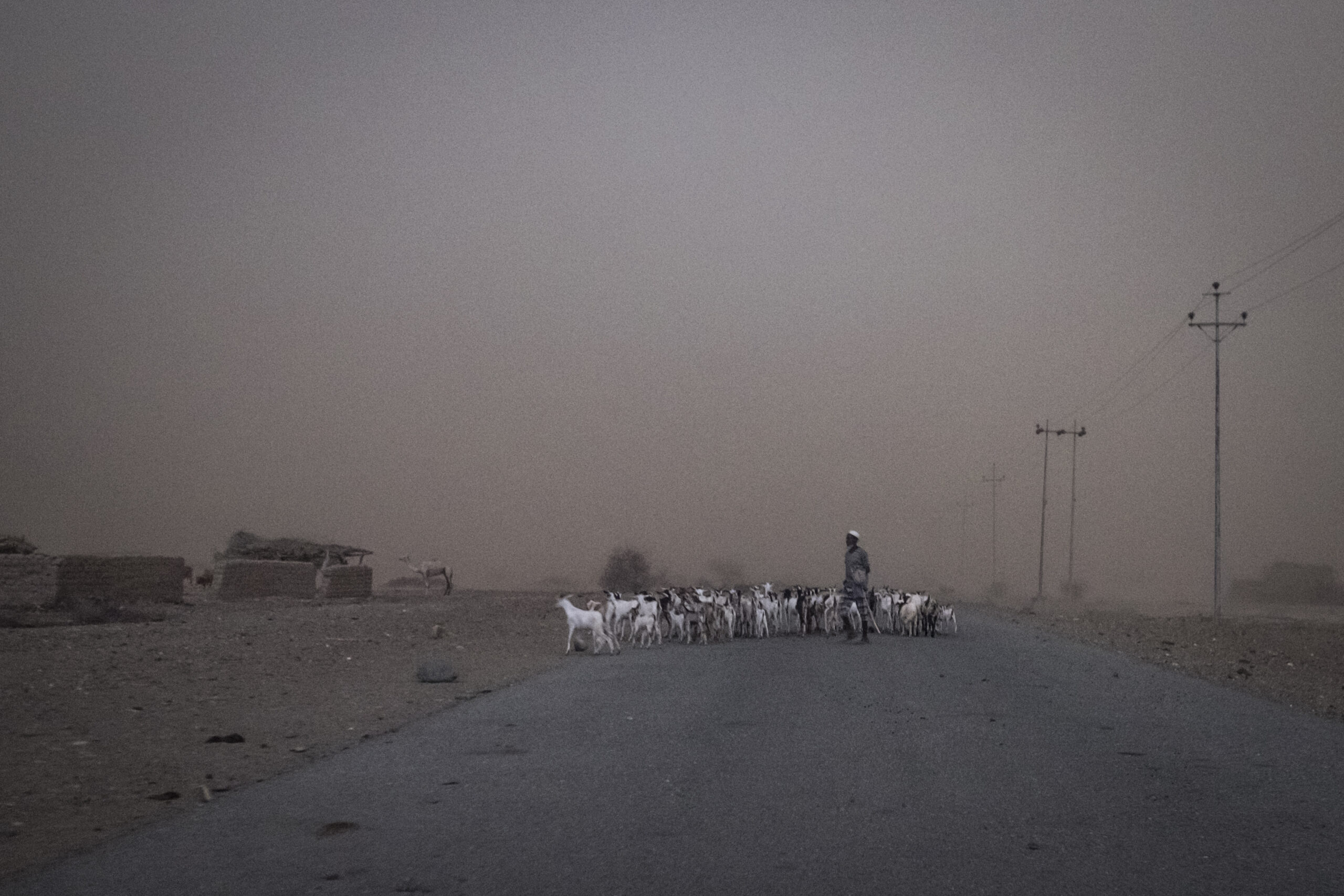 On the road between Asmara and Massawa on July 26, 2016. A goatherd and his flock get surprise by a sandstorm.
On the road between Asmara and Massawa on July 26, 2016. A goatherd and his flock get surprise by a sandstorm.
Of course, the most important thing about studying is not the choice of program and the application process, but studying photography itself. When you get the opportunity to be accepted into a degree program, it’s a great gift: it’s the chance to find yourself over several years in your visual language. It is therefore a good idea to take advantage of this time. It’s best to take your modules and assignments seriously, even if they sometimes seem boring. But over the course of your photography studies, you’ll notice that even these things will greatly shape and enrich your photographic development.
Be sure to take advantage of the opportunity to interact with your fellow students during your time at university, they will often bring interesting and unfamiliar perspectives to photography. This exchange will help you to develop your own style and answer one or two questions. Many degree programs also have equipment lending. This allows you to engage with unfamiliar technology and its possibilities. This way you can test out analog and digital photography in their respective approaches and opportunities. It will be a wonderful experience for you to see how you and your friends will develop during your studies.
6. Conclusion
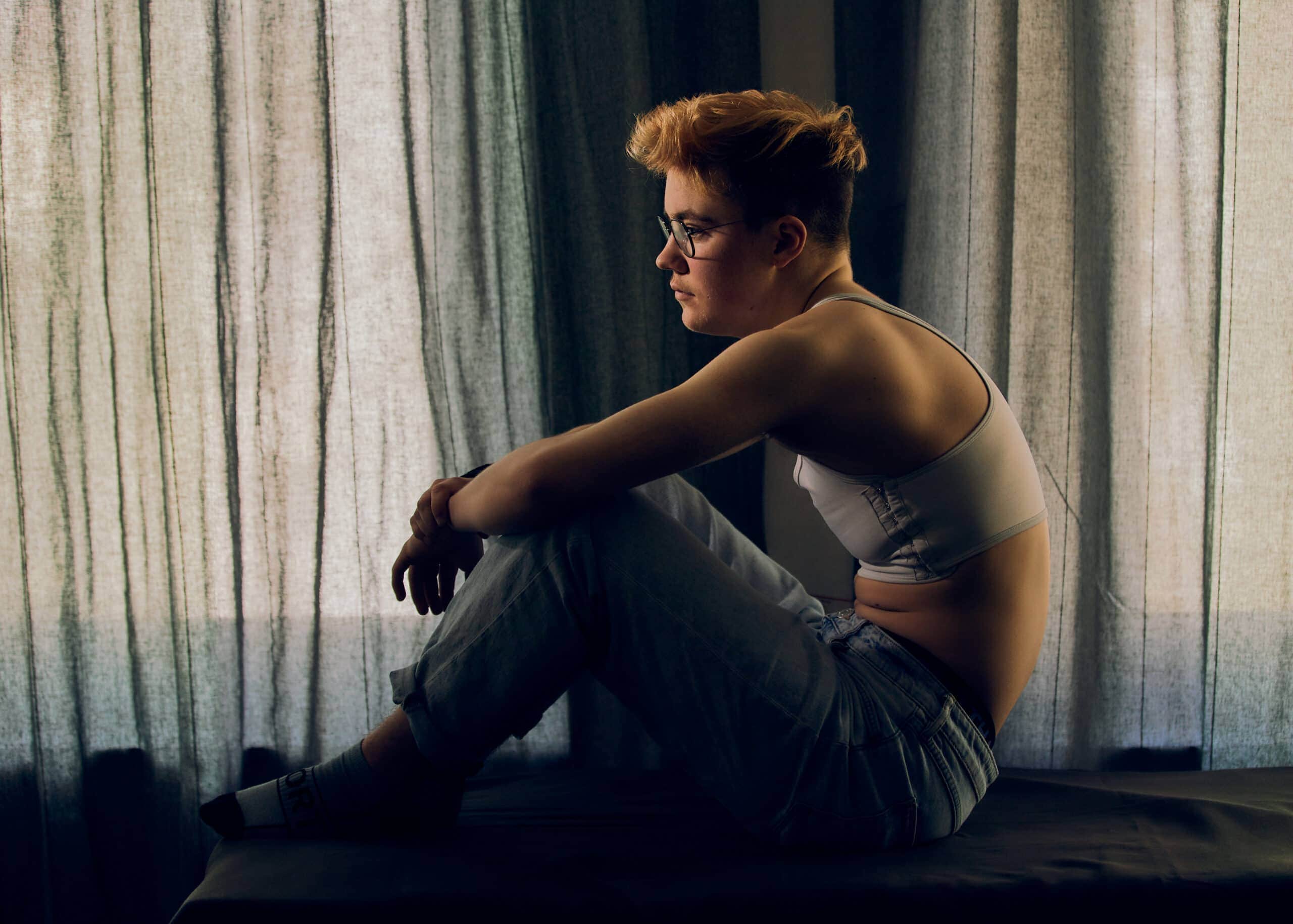 For her bachelor thesis "Because I've always been James", Jana Mai accompanied a young trans man.
For her bachelor thesis "Because I've always been James", Jana Mai accompanied a young trans man.
It can be hard to find the right college, university or art school in the plethora of photography degree programs. Therefore, it is definitely worthwhile to look into the individual study programs. Above all, it is important that you make it clear to yourself: What interests you and what do you want for your professional future? Depending on whether you’re interested in fashion photography, press photography, or fine art photography, a college may be more appropriate for you. Or maybe you’re in good hands in a subject that’s close to photography, like “visual communication”. You may also want to clarify what the study requirements are. At some universities, for example, you can be admitted to photography studies even without a high school diploma.
After that, you can decide whether Dortmund, Bielefeld, Munich, Berlin or Hanover might be the best place for you. Then you should research what requirements your desired university has for you. Are there certain aspects that you should definitely consider in the application portfolio?
Finally, be prepared for possible questions that may be asked during the entrance exam. The important thing is to always stay calm and do your best. This will definitely put you on a good path to be able to study photography. We wish you every success on your way to graduation!
Recommendations for you:
